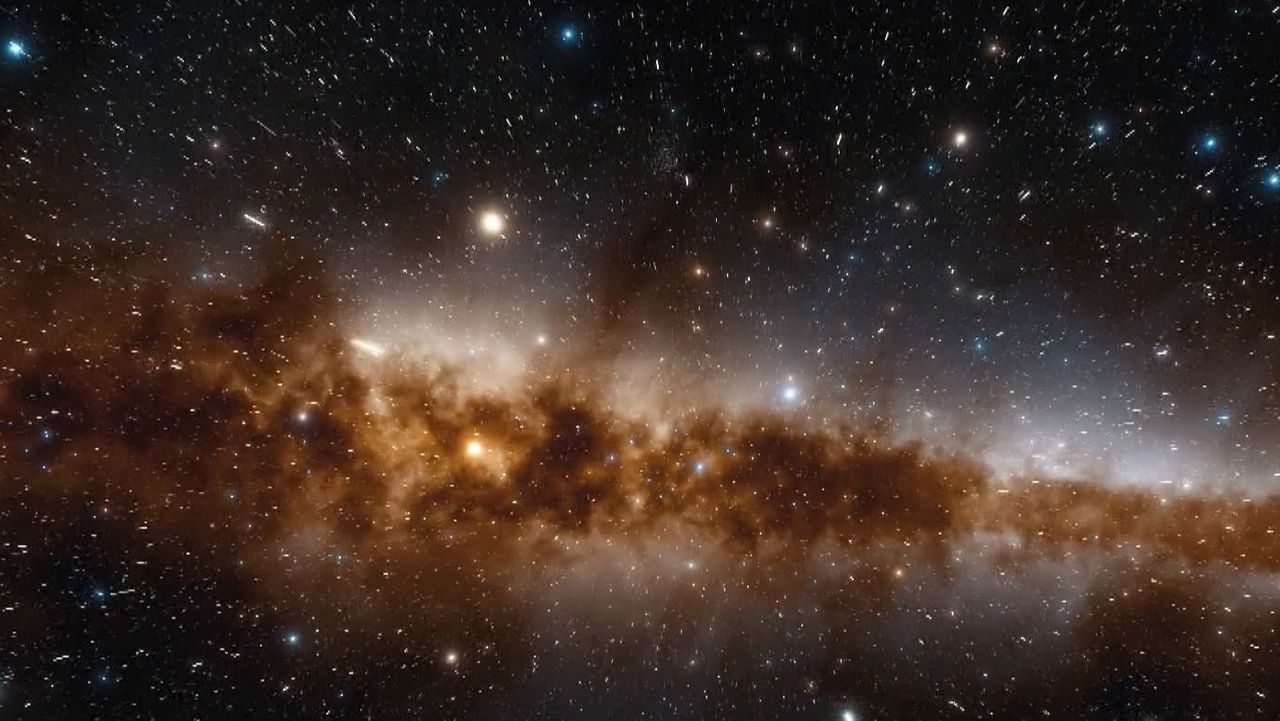PASADENA, Calif. — The existence of extraterrestrial life has been a mainstay in pop culture for decades, from the early beginnings with films like “The Day the Earth Stood Still,” or “Plan 9 from Outer Space” back in the 1950s.
From movies, television, books and podcasts, people have been fascinated with exploring the idea that we are not alone in the universe.
Extraterrestrial life has become so ingrained in pop culture that it even has sparked an entire convention, AlienCon, happening this weekend at the Pasadena Convention Center.
Alien enthusiasts will gather to learn more about outer space and the potential for intelligent life out in the cosmos.
The convention brings together both planetary researchers and science fiction enthusiasts.
A new initiative by the UCLA Search for Extraterrestrial Intelligence (SETI) program is also a collaboration between scientific researchers and outer space enthusiasts to try to answer the question everyone attending AlienCon has probably asked: Are we alone in the universe?
Professor Jean-Luc Margot is leading the new UCLA SETI initiative and sat down with “Inside the Issues” host Alex Cohen to go over how the public can help researchers look for intelligent life beyond Earth.
“The universe is so vast and the building blocks of life are so abundant in the cosmos. The number of planets in the cosmos is so large that it’s very unlikely that life on Earth is the only form of life that exists out there,” Margot said.
The new initiative is aptly called “Are We Alone in the Universe” and allows the public to help with sorting data.
UCLA SETI uses the Green Bank Telescope to collect terabytes of radio signals. Researchers then have to comb through all the collected data to find signals that could be from other life.
“We’re essentially looking for radio transmissions from other civilizations in the galaxy or beyond,” Margot said.
Margot says even with established algorithms that can sort 99.5% of the signals collected, the remaining .5% is still a tremendous amount of data that needs to be sorted.
Therefore, the UCLA SETI program has enlisted the public’s help. People who want to help search for extraterrestrial life can sign up to be trained on how to sort the data into categories for researchers.
The helpers are shown structures of the radio signals and are asked to classify the signals into one of 20 different classes.
The end goal of the collaboration project is to create a training set for artificial intelligence tool that could then take over and start classifying the signals.
“Right now the machines can’t do the job as well as humans can, but once we have this data and once we train the algorithm, we hope that the artificial intelligence tool will be able to parse through the data very efficiently,” Margot said.
There are no prerequisites to sign up for the program. Margot says they are targeting anyone age 10 and up who has access to the internet. The classifying can be done from a computer, tablet, or smartphone. New users have to walk through a short tutorial, then can start searching for signs of intelligent life.
“The response has been amazing,” Margot said. “We have more than 2,000 volunteers who’ve signed up and collectively they’ve classified 100,000 signals, so it’s working really well.”
Margot said signals collected that are deemed from potential extraterrestrial life would go through a lot of vetting and confirmation. Though assuming a signal passes all the steps and is deemed genuine, the discovery would be phenomenal.
“It would be, first of all, evidence that we are not alone in the universe, that there’s another civilization out there,” Margot said. “Second of all, it could be information on that message. Imagine what we could learn if we decoded a message from a civilization that’s possibly far more advanced than we are.”
To learn more or to sign up for the Are We Alone in the Universe program, visit their website.
Let "Inside the Issues" know your thoughts and watch Monday through Friday at 8 and 11 p.m. on Spectrum News 1.



